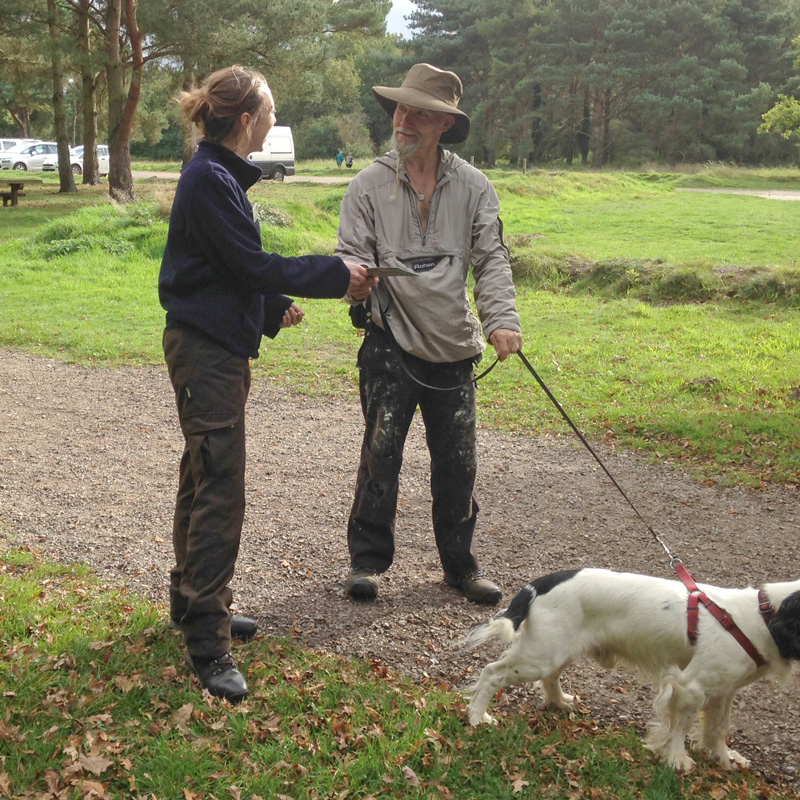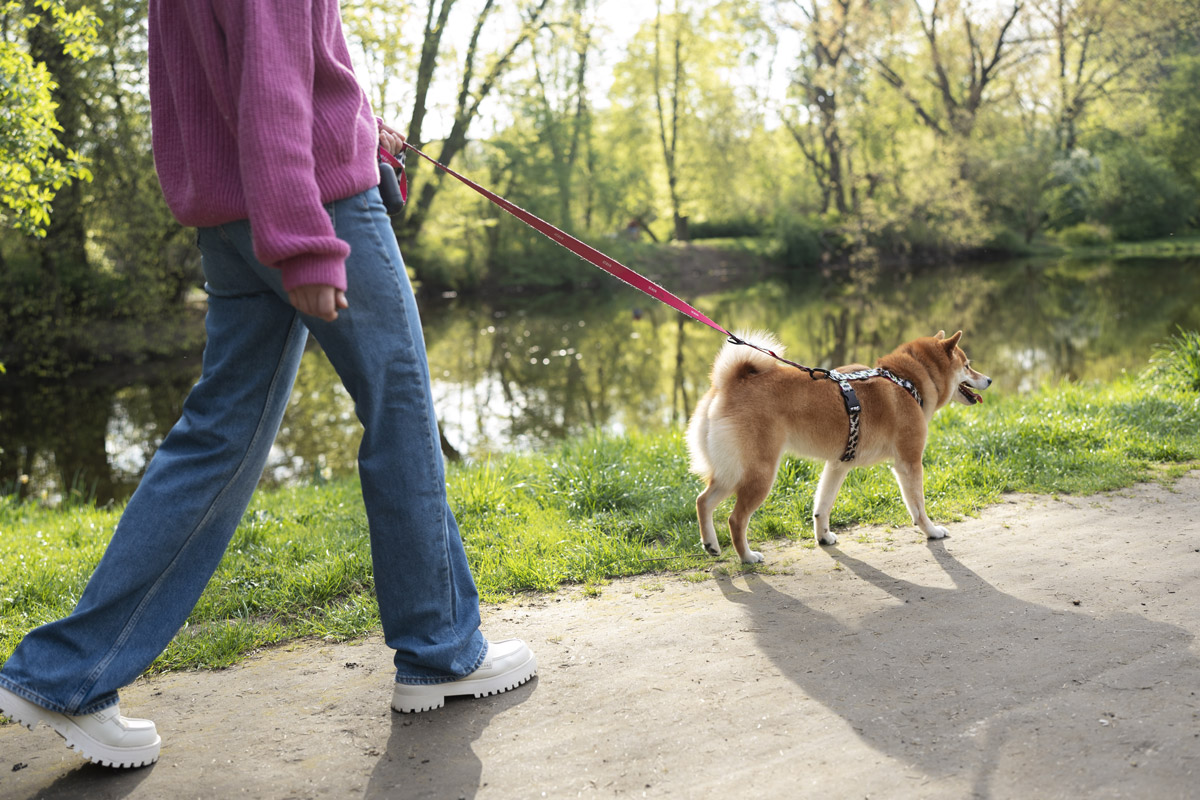Wellbeing-Bonus
Share-with care delivers real wellbeing benefits
Wellbeing has proved to be a significant persuader
By teaching visitors about this benefit, the ambassadors have been able to change people’s behaviour – for the better.
Just by talking to visitors, individually, or groups of people at events we call Wellbeing-Gigs, people can be ‘re-minded’ of the effects of Nature and so can be persuaded (by themselves!) to become more considerate. And then even reluctant dog owners will, if grudgingly, put their dogs on leads.


During the Pandemic the term ‘wellbeing’ took on a very real meaning for many more people. And it became a personal objective for many of us too.
At the same time greenspaces have come to be seen by the public as increasingly valuable reservoirs of Nature. Becoming more important to people because they were being recognised as places where we could go to improve our wellbeing.
Share-with care seized on this growing appreciation as a way of leveraging more considerate behaviour by site visitors. It did this by providing them with more understanding of the wellbeing phenomena and its benefits.
So, at the heart of this strategy, is a simple syllogism, thus:
Proposition #1
Disturbance on greenspace sites reduces the presence of wildlife.
Proposition #2
When people see, hear etc. wildlife their wellbeing improves.
Conclusion
Thus it follows that the greater the reduction in disturbance can be, the more people will encounter wildlife on a site and hence the bigger the wellbeing benefit they will receive
And this increased benefit is what we call the ‘Wellbeing‑Bonus’.
But that ‘Wellbeing-Bonus’ would not be available if dogs were let loose around a greenspace.
This long history of loose dogs is the essence of the problem we have in trying to persuade dog walkers to be more considerate. And this is the reason why the vital task of putting dogs on leads is such a tough ask. For this request to be successful, dog walkers need to be given a strong reason for conforming.
This is where the Wellbeing-Bonus comes in. Our bodies are still governed by our hunter-gatherer history. For millennia, just to survive, we had to be alert to Nature. So even today, when we meet wildlife and we see and hear animals, or encounter the aromas of flowers or woodland, our bodies instinctively react positively to these stimuli. Because, with each encounter, a variety of substances are being automatically released into us, benefitting our bodies in many ways. And that is the source of the ‘Wellbeing-Bonus’.
